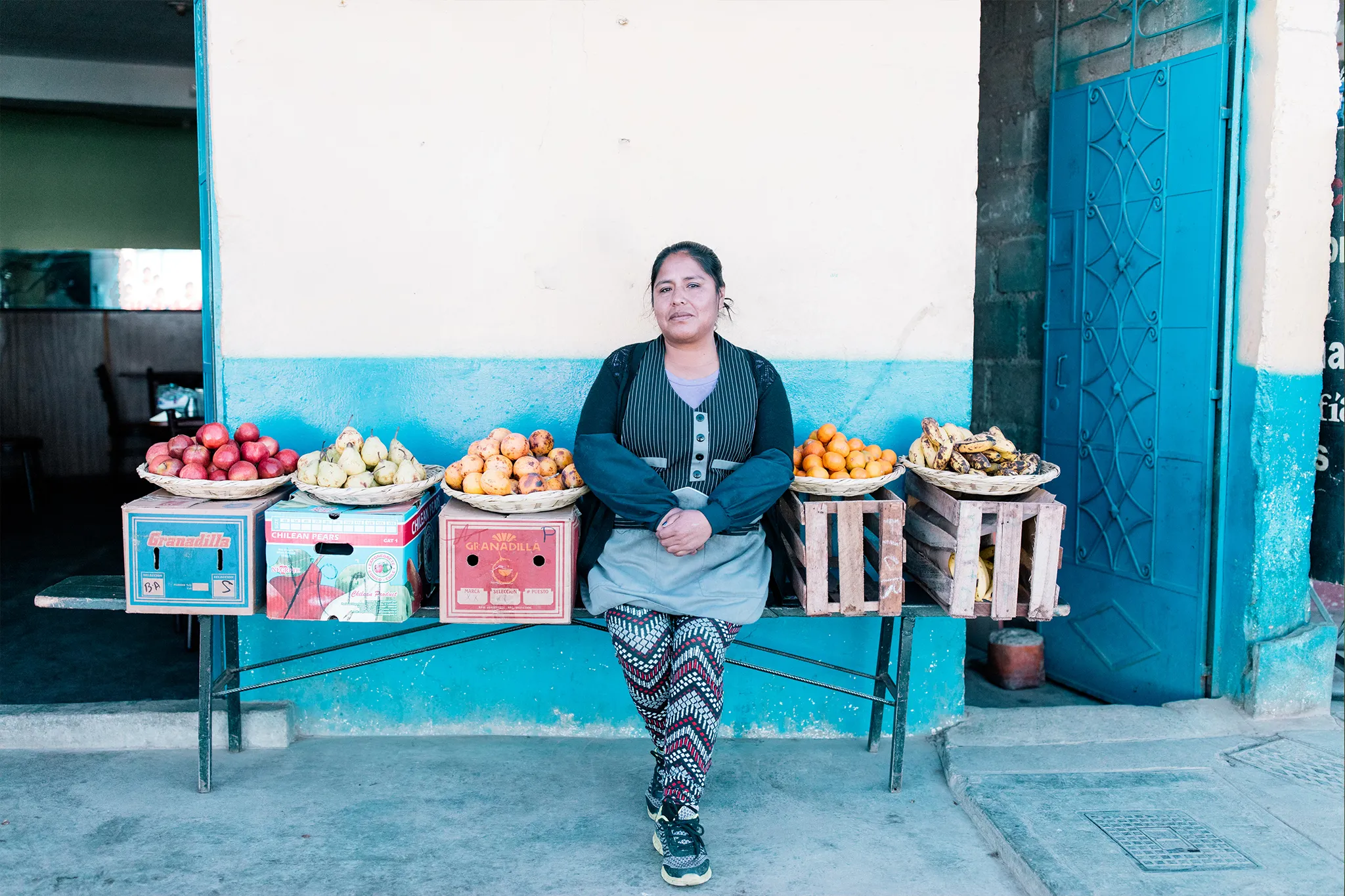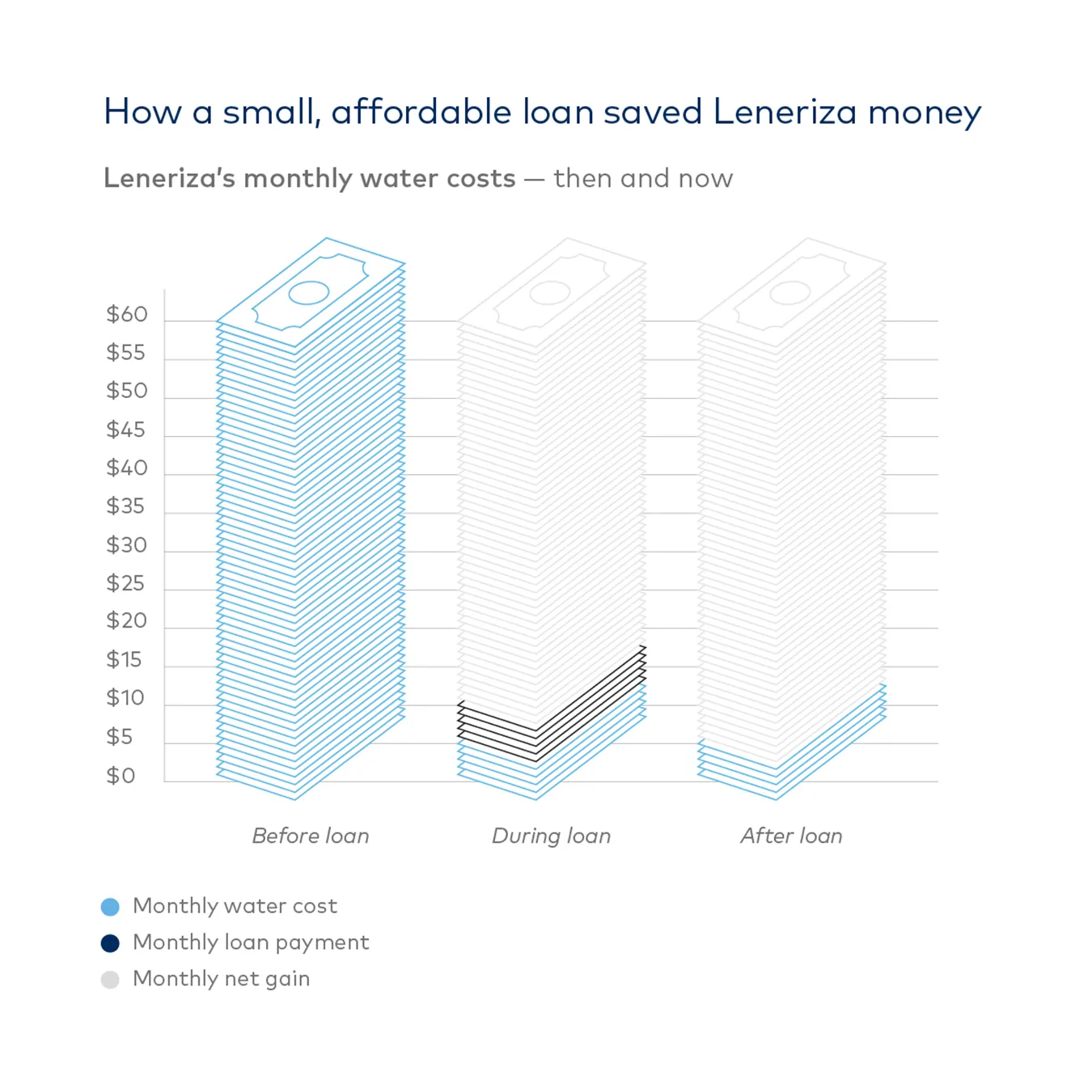An Economic Crisis
How does the water crisis affect the economy?
Time spent collecting water or seeking a safe place to go accounts for billions of dollars in lost economic opportunities. There are 771 million people in the world who lack access to safe water, and of them, women are generally tasked with water collection. They spend hours, multiple times per day, waiting in long lines at community water kiosks or walking to distant sources like rivers and ponds to find it. This is time spent, and income not earned. An estimated $260 billion is lost globally each year due to lack of basic water and sanitation.
Access to safe water and sanitation increases economic return
Improving household water and sanitation access impacts household finances and ultimately the economy at a macro level. For instance, access to safe water and a toilet at home can reduce a family’s health care expenses. Universal access to basic water and sanitation would result in $18.5 billion in economic benefits each year from avoided deaths alone. Every $1 invested in water and sanitation provides a $4 economic return from lower health costs, more productivity and fewer premature deaths.

"People living in poverty are often the hardest hit by water scarcity and these are the people Water.org helps." Matt Damon, Co-founder

Empowering families through small, affordable loans
Safe water at home empowers women and their families to explore their income-generating potential. Instead of walking to find water, they have time to earn money by doing things like sewing, farming, and teaching. It is with income from these activities they can break the cycle of poverty.
Leneriza lives in the Philippines. Until recently, she didn't have access to safe water at home. She purchased water from a vendor for about $60 a month. This amount was more than 20% of her monthly income. A small, affordable loan changed Leneriza's life. With the loan she connected her home to the local water utility. Now Leneriza pays a utility bill of about $4.50 a month.
References
- World Health Organization and UNICEF. (2016). Safely managed drinking water
- World Health Organization and UNICEF Joint Monitoring Programme (JMP). (2021). Progress on Drinking Water and Sanitation, 2021 Update and MDG Assessment.
- World Health Organization. Hutton. (2012). Global Costs and Benefits of Drinking Water Supply and Sanitation Interventions.
Empower families around the world to break the cycle of poverty and look forward to bright futures.
Donate